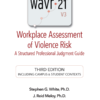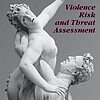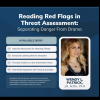Conducting Child Custody Evaluations (3 day)
There are numerous considerations which go into child custody evaluations. A poorly conducted custody evaluation can have a damaging and long lasting effect on the child. A successful evaluation promotes the best interests of the child, but arriving at that point can be difficult. In many divorces, emotions run high, and the clinician may have to consider volatile issues such as domestic violence, parental alienation and/or allegations of sexual abuse. To arrive at the best possible outcome requires that the evaluator understand these and many other important dynamics and legal guidelines. Those who provide evaluations, whether from mental health, mediation or family/conciliation courts must have the requisite training to do them in a professional and competent manner. This three day seminar provides focused training designed to give evaluators the knowledge and skills necessary to successfully conduct child custody evaluations. In addition to continuing education in one’s respective discipline, this program offers 20 hours of training which meets the California Rules of Court, Rule 5.225, regarding the education, experience and training standards for court appointed child custody investigators and evaluators. The presentation is intended for both experienced and new evaluators.
Workshop Content – Day 1
Introductory Issues: Components of a Custody Evaluation, Maintaining Professional Neutrality and Objectivity, When to Seek Peer Consultation or Involvement of Additional Experts, Staying Current with Relevant Research and Literature, Bibliography of Excellent Resources
Ethical Issues: Informed Consent, Mandatory Reporting, Confidentiality, Use of Data, Distinction among the Areas of Evaluation, Therapist vs. Mediator, Dual Relationships, Case Examples of Ethical Dilemmas
How Divorce Affects Families: Psychological and Developmental Needs of Children, Relevant Research Regarding Family Dynamics, the Effect of Separation and Divorce on Children, Cultural, Religious and Gender Concerns
Risk Management Issues: Two hours of risk management will be presented which should qualify a psychologist to receive a reduction in their malpractice insurance
Workshop Content – Day 2
Evaluation Issues: What Constitutes an Appropriate Evaluation?, Understanding Interview Techniques, Behavioral Observations, Obtaining Information from Collateral Sources Regarding General Mental Health, Substance Abuse, Problems with the Law, Medication Utilization and Physical Disabilities
Psychological Tests: Administration, Scoring and Interpretation of Appropriate Psychological Instruments used in Custody Evaluations, Relevant Research Supporting the use of these Instruments (presented from both a psychologist and non-psychologist perspective). The issue of psychological testing will address the Daubert Standard and will examine what tests do and do not meet those standards
Ackerman Meta Analysis: A presentation of the new meta analysis conducted by Ackerman, et. al and Bow, et. al., which now ultimately defines the standard of practice for performing child custody evaluations
Workshop Content – Day 3
Special Issues: Physical Abuse, Sexual Abuse and Domestic Violence, Relevant Research, Affects on Children, Family Code Section 3110.5 and 3118, Safety Issues
Bonding Assessments: A new and important area of concern
Recommendations: Measuring and Assessing Parenting Capacity for the Best Interest of the Children, Placement Schedules Focusing on Health, Safety and Welfare of Children, CA Laws regarding Custody and Placement, Evaluating what is in the Best Interest of the Children.
How Reports Should be Written, What are Appropriate Recommendations?, How this Information is Disseminated to the Courts, Attorneys and other Parties
Preparing for/Giving Court Testimony (Didactic Presentation-Role Playing, Mock Trial)
Workshop Objectives
Identify the ethical considerations in child custody evaluations
Describe the standard of practice in child custody evaluations
List the various legal statutes which affect child custody evaluations
Identify the components of an appropriate child custody evaluation
Differentiate between real vs. fabricated allegations of abuse, domestic violence and alienation
Recognize the pitfalls of court reports and courtroom testimony
Presented by






